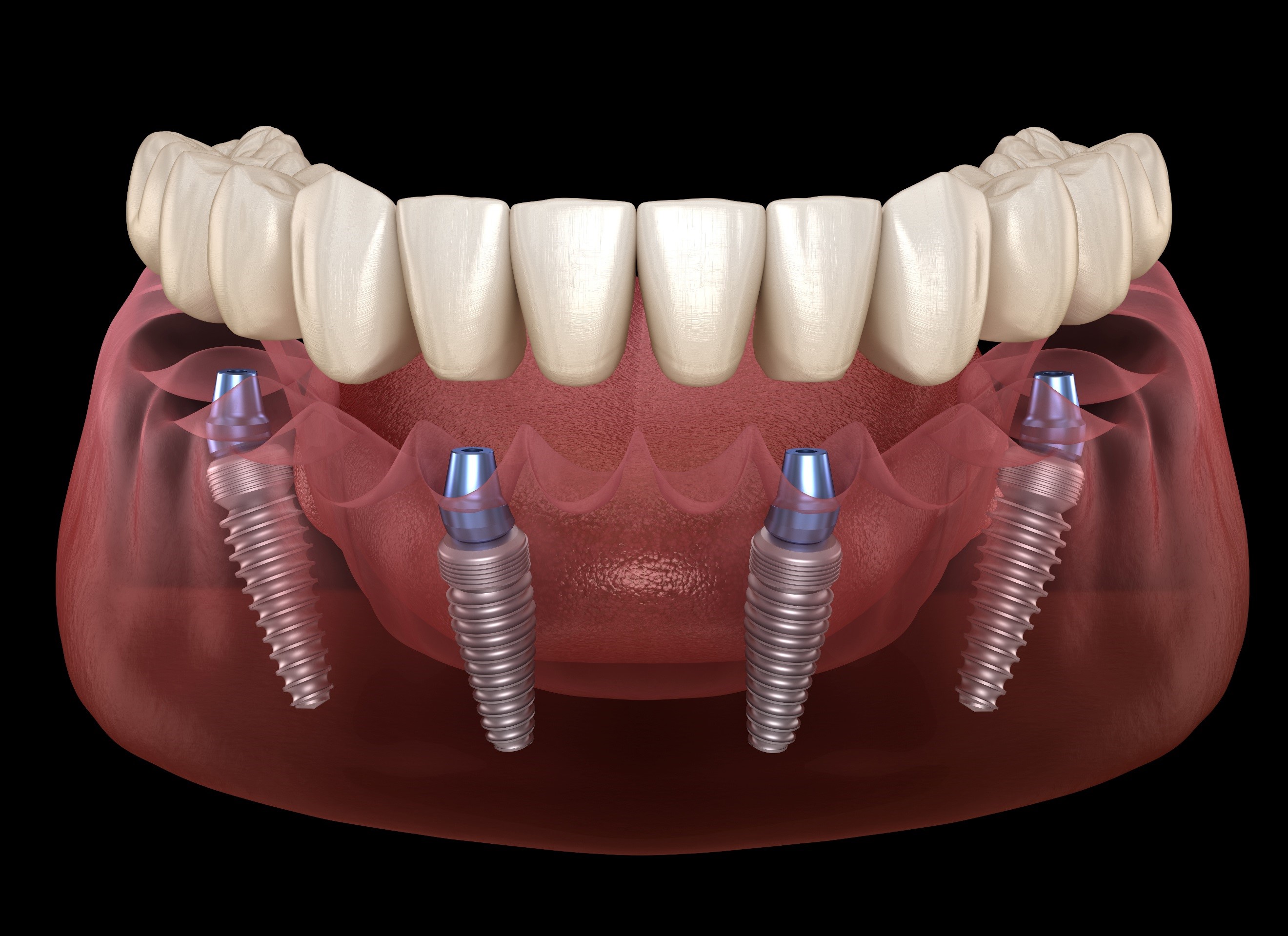A dental implant is a procedure to replace one or more missing teeth with permanent teeth. This procedure is considered to be one of the most successful procedures as it reproduces the look and feel of natural teeth.
If you are suffering from the loss of multiple teeth, the all on 4 dental implants offer a permanent solution to traditional dentures. With this method, only four titanium implants are used to firmly attach the prosthesis with at least twelve teeth in the jaw. If you need the best all on 4 dental implants go through https://www.comfortdentalcentrebuderim.com.au/treatments/dental-implants-buderim/.

Image Source Google
Here is a step-by-step description of the procedure for all four dental implants:
Free consultation –
The first step involves a visit to a specialized and trained implant specialized. He or she will examine you to decide if you are a candidate for the all on 4 dental implants procedure. He takes a mold of your upper and lower jaw so he can design and manufacture a prosthetic bridge. If you have any questions or requests, you can ask a specialist during the initial consultation.
Preparation –
When you visit a treatment specialist, you will receive preoperative instructions and treatment. Once you are ready, you will be sedated so that the specialist can begin the procedure.
Procedure –
The specialist will first perform a proper cleaning to remove all damaged teeth and infected gum and jaw tissue. Two dental implants are then placed near the front of your jaw because there is more bone in that area.
Another two implants are placed in the back of the jaw so that it can be well supported by the jawbone. Once the implant is in place, the surgical site will be cleaned thoroughly and you will have time to relax. The personalized temporary bridge is then finished and a new set of teeth is placed on the implant.
Aftercare –
After this procedure, you will receive detailed instructions on how to care for your teeth. If necessary, you will also be given painkillers, antibiotics, or other necessary medications. In most cases, there is usually no discomfort and the patient feels better over time.